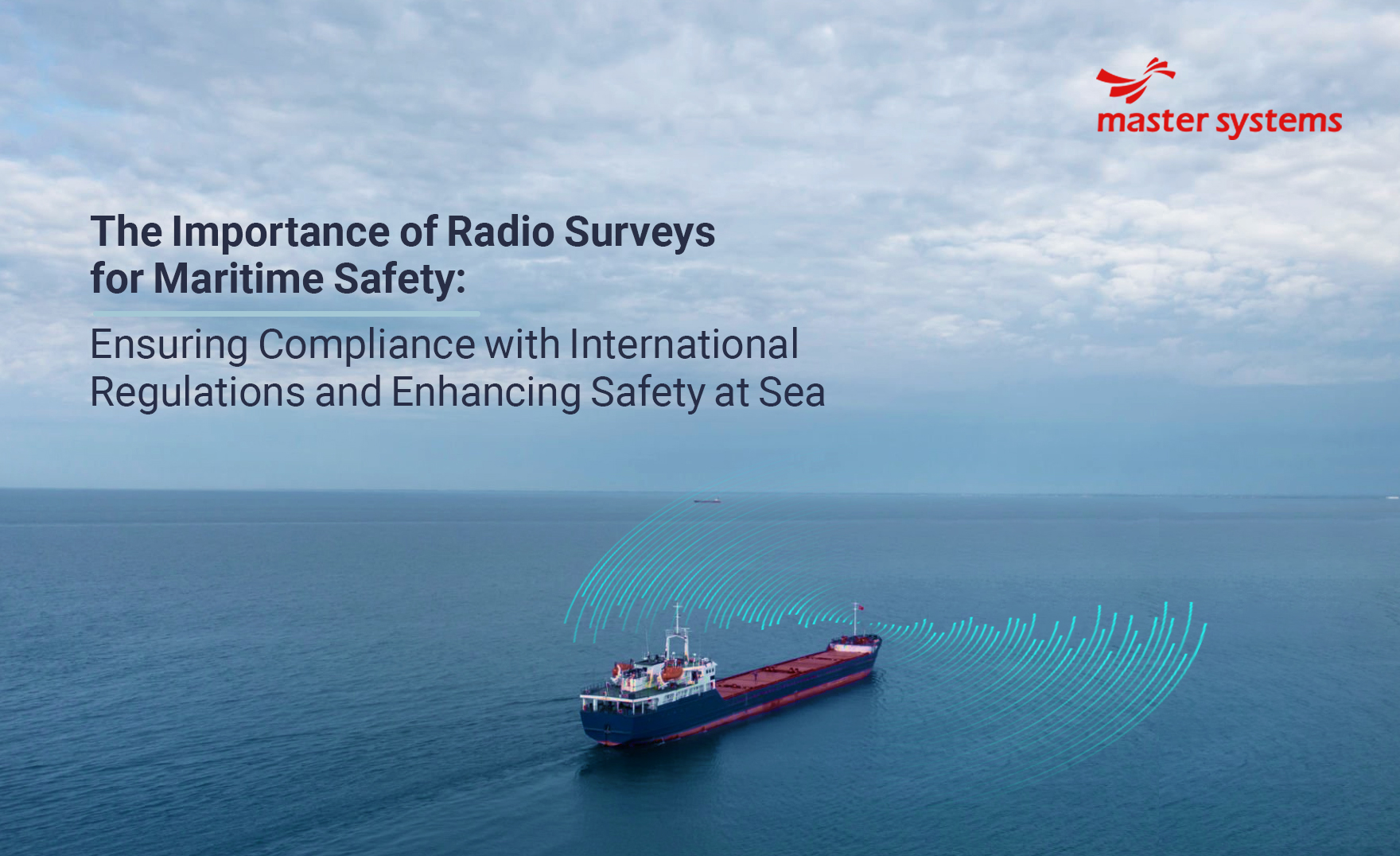At sea, where conditions can change in an instant, effective Communication is not just important; it’s vital. It’s the key to detecting potential threats and responding to emergencies. Unlike on land, the sea offers limited communication options, making comprehensive radio surveys a critical tool for maritime safety. So, having an appropriate and fully functioning radio system is very important for vessels and ships in the sea. Before they embark on the journey, the system must be evaluated to ensure the communication channel has no faults. This evaluation, known as a radio survey, provides an understanding of the current communication situation and areas of improvement.
A marine radio survey is an inspection or audit conducted to ensure that all radio communication equipment on a marine vessel is operational, compliant with regulatory standards, and capable of providing reliable Communication for safety and navigation. This survey is crucial for maritime vessels, especially those operating in international waters or within specific safety zones, as communication systems are vital for distress signaling, navigation, and coordination with other vessels or port authorities.
Importance of Marine Radio Surveys
Safety Compliance: Marine radio surveys ensure that vessels comply with international and national maritime safety standards, including the Global Maritime Distress and Safety System (GMDSS). This compliance is necessary to avoid penalties and ensure that### Comprehensive Overview of Marine Radio Surveys.
A marine radio survey is a detailed inspection and audit to evaluate the operational status and regulatory compliance of all radio communication equipment aboard a marine vessel. This process is critical to ensure that communication systems are reliable and effective for safety and navigation. The significance of marine radio surveys increases for ships operating in international waters or within specific safety zones, where robust communication systems play an essential role in distress signalling, navigation, and coordination with other maritime operators or port authorities.
Importance of Marine Radio Surveys
Safety Compliance
One of the primary objectives of a marine radio survey is to ensure that vessels adhere to international and national maritime safety standards, including the Global Maritime Distress and Safety System (GMDSS). This compliance is vital for avoiding hefty penalties and, more importantly, for confirming that the vessel is equipped to manage distress communications effectively. Non-compliance can lead to severe consequences, including delays and operational restrictions.
Reliable Communication: The survey ensures that communication equipment, such as VHF, MF/HF radios, satellite communication devices, and other essential systems, is in top working order. Reliable Communication is essential for coordinating with other vessels, responding to emergencies, and receiving weather updates.
Distress and Emergency Readiness: In emergencies like bad weather, mechanical failures, or accidents, functional radio equipment is critical for signalling distress and requesting help. The survey ensures that equipment like emergency position-indicating radio beacons (EPIRBs) and search and rescue transponders (SARTs) is operational and accessible.
Regular Maintenance: The survey identifies any equipment that may need repair, replacement, or updates, ensuring that radios and emergency devices are always ready for use. Regular maintenance helps prevent communication breakdowns that could put crew and vessel safety at risk.
Enhanced Navigation and Coordination: Marine radio surveys verify that the vessel can receive necessary navigation updates and weather information, which supports safe route planning and real-time coordination with other vessels and harbour control.
Operational Certification: A successful marine radio survey is often required for a vessel’s Certification, enabling it to legally operate in specific regions or under certain international regulations. Certification can impact a vessel’s insurance status and the ability to access certain ports.
How is a GMDSS Radio Survey Done?
A GMDSS radio survey is a thorough inspection of all the Global Maritime Distress and Safety System equipment on board, including all the radio and communication equipment. It is a must for ship safety and regulatory compliance. Here’s how a GMDSS radio survey is done:
Initial Inspection: The survey starts with an overall inspection of the vessel’s GMDSS equipment including all radio, satellite and communication systems. The surveyor checks the ship’s documents and verifies all equipment is installed and working.
Testing and Inspection: Each GMDSS system component is tested and inspected to meet the performance standards. This includes testing distress alerting systems, satellite communication equipment, emergency position-indicating radio beacons (EPIRBs), search and rescue transponders (SARTs), and other radio equipment.
Functionality Check: The surveyor checks the functionality of all GMDSS equipment to ensure it can transmit and receive distress signals, alerts and other important messages. They verify it can operate on the designated frequency bands and under different conditions.
Battery and Power Supply Check: The surveyor checks the power sources of battery-operated equipment. The batteries are verified as being in good condition, fully charged, and able to provide power for the required duration during an emergency.
Document Review: The ship’s documents, including logbooks, maintenance records and certificates, are reviewed to ensure the equipment has been properly maintained and serviced as per regulations.
Certification: If the GMDSS radio survey is found to be compliant with international and national standards, the ship is issued a certificate, which is a must for maritime safety and regulatory compliance.
Frequency and Channel: The surveyor checks that the GMDSS equipment is set to operate on the required frequency and channel, which is crucial for Communication during an emergency.
Training Check: The surveyor may also check the crew training on using the GMDSS equipment and their understanding of emergency procedures and distress communication.
Conclusion
In UAE, marine radio surveys are mandatory for the safety and compliance of vessels operating in both local and international waters. A Marine Radio Survey in UAE involves a thorough check of the communication equipment on board to ensure all systems meet the Global Maritime Distress and Safety System (GMDSS) requirements. These surveys check the functionality of essential devices like VHF, MF/HF radios, satellite communication units and EPIRBs. As UAE is a major player in global maritime trade, regular radio surveys are necessary for safe vessel operation, to comply with strict regulations, be emergency ready and get port access. These surveys are crucial for vessel security, crew safety and response to distress situations in one of the busiest maritime areas in the world. Comprehensive radio surveys in the UAE have the power to elevate marine operations, and expert marine radio surveys are essential for success.


